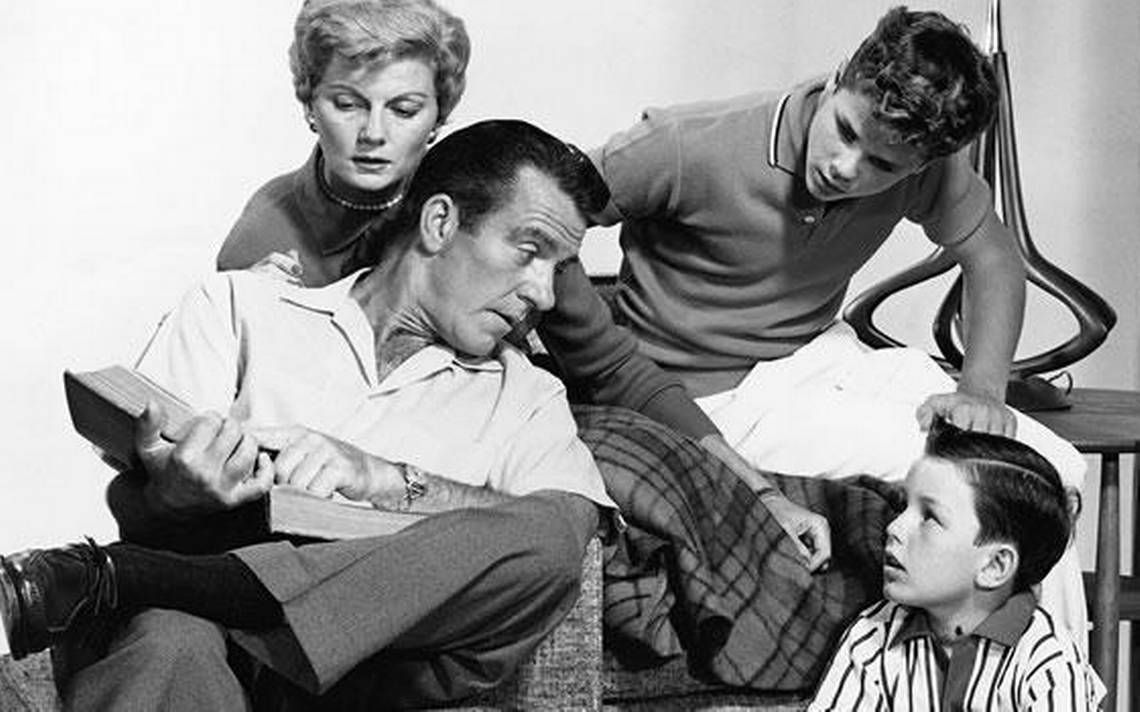 With the recent Father’s Day holiday, American families celebrated all that dads contribute to our lives.
With the recent Father’s Day holiday, American families celebrated all that dads contribute to our lives.
While moms may typically be thought of as the primary caregivers in our culture, fathers are becoming more and more involved in their kids’ lives every day.
But as times have changed, one stereotype about dads is still going strong.
Virtually every TV sitcom or film portrays mom as always having all the answers, while dads are often depicted as being clueless about what goes on in the home or how to meet the needs of the children.
This stereotype is so much a part of our culture that when we do see a heavily-involved dad, we gush at how nice it is for him to do so much and how adorable it is to see him trying so hard.
So when did this stereotype take hold, and why are we still portraying our dads in this way?
After the “Leave It To Beaver” days of the fifties when fathers were depicted as being hands-off with the kids unless they needed discipline, television and film in the sixties and seventies explored changes going on in society – absentee fathers and single moms, the breakdown of the family, and more women working outside the home.
But as the role of women in the family dynamic changed, the role of dad as being disinterested and uninvolved with the kids continued.
From the eighties to the present, dads have been portrayed in entertainment media as dimwitted and unskilled at parenting, being parodied as not even being able to change a diaper without a struggle.
Romper.com remarks on this cultural trend that is past its prime:
It’s ingrained in me, and in our culture, to register a dad’s caring actions towards his children as off-the-charts adorable, and that’s because the bumbling dad stereotype has persisted for as long as it has. We need to do better by fathers in the media by portraying them as the positive influences they mostly are.
The World Economic Forum, along with data from the Pew Research Center, finds that the two most recent generations of dads – GenX-ers and Millennials – are more involved than ever before in the day to day care of their children and in helping with housework.
And since 1989, the number of stay-at-home dads has nearly doubled. The eighties brought a sharp increase on women returning to the workforce, and despite the way dads are portrayed in the entertainment world, it appears they have stepped up to the plate to do their share.
Dads on screen are nearly always asking mom what to do or stumbling around with a blank expression when their kids engage with them. The “I don’t know, go ask your mother” line is still widely used.
The New York Times reports on the reasoning behind this ever-present stereotype on television:
The most obvious is that…sitcoms are now a female domain. Four out of five viewers of network sitcoms are women, and they apparently like to see Mom smarter than Dad.
Another explanation is the rising number of mothers with paying jobs. Now that they have their own paychecks…TV writers no longer have an easy stereotype of Mom to work with.
But with women taking on more diverse roles in the family and demanding to be treated equally to men in recent decades, some women are seeing the irony in the fact that dads are still being portrayed in this stereotypical way.
Anna Hill, an entertainment marketing officer tells WEF:
“We shouldn’t just stereotype them, which I think as a generation we probably have done,” Hill said. “Dads are becoming househusbands and the main caregivers. They are a source of protection, comfort, enthusiasm for their families. So I think it’s important for us that we tell new stories.”
While every family is different and each parent takes on a unique role due to their personal family circumstances, it is certainly time for “new stories.”
Modern dads are doing it all and more supportive of mom than ever. Research shows that while moms are still putting in more hours a week than dad on childcare and housework, the time that fathers are contributing has skyrocketed since 1965.
The fathers of our children deserve more than to be labeled bumbling idiots in every portrayal in film and television.
Yes, the jokes are funny. Yes, they are sometimes true. But, just like dads, we moms also have our “clueless” moments when we are just trying to figure it all out.
And fighting to keep traditional family values strong in our nation – values which are under attack more than ever before – means supporting the efforts of both mom and dad.
What do you think of the way dads are portrayed as “clueless” and inept in film and television? Do you think this stereotype should become a thing of the past? Leave us your thoughts.
